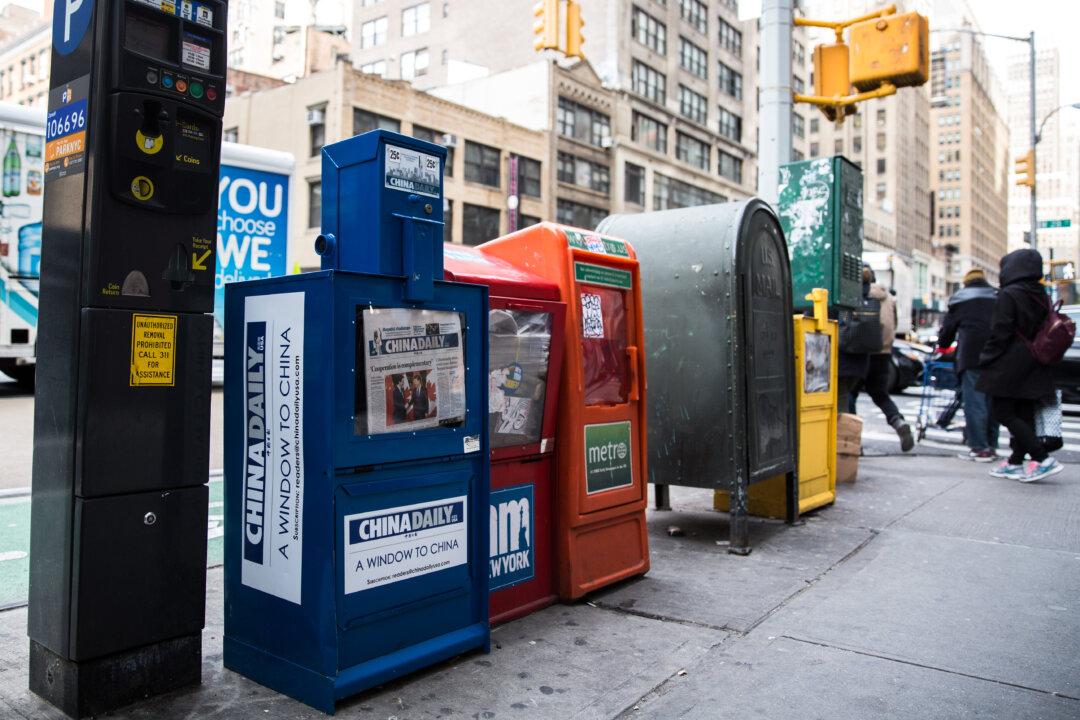A recent assessment of the Chinese-language media landscape in the United States says that most media outlets are under Beijing’s control or possess a pro-Beijing editorial stance.
On Nov. 29, the Hoover Institution, based at Stanford University, published a report by a group of China scholars from around the world that details China’s attempts to influence and infiltrate U.S. government and society. Included in the document is a section on how the Chinese regime has sought to influence public opinion in Chinese immigrant communities via Chinese-language media.
According to the authors, the Chinese regime has made it a priority to control the narrative of how China is portrayed overseas, and Beijing has launched a “concerted campaign” to control Chinese-language media.
At a meeting held this August on propaganda work, Chinese leader Xi Jinping said, “To present good images, we should improve our international communication capability, tell China’s stories well, disseminate China’s voice, show an authentic and comprehensive China to the world, and raise the country’s soft power and the influence of Chinese culture.”
Aside from increasing the operations of its state media on foreign soil—with over 2,000 staff globally at the China News Service, which acts like a wire service and sends articles to overseas Chinese media—China has taken control over some of those very same media companies that cater to an overseas Chinese audience.
Under Beijing’s Thumb
For example, Sky Link TV, a 24/7 Chinese satellite TV channel, was first established in 1989 in California by a Taiwanese corporation, according to the report. But between 2013 and 2014, the company was purchased by a state-owned media company based in Guangzhou City in southern China, GZ Television Media. The acquisition was hailed as “an important project for cultural export” in a July 2014 document published by the Ministry of Commerce.
Other media outlets were also initially established overseas as an independent voice, but have since fallen under Beijing influence, according to the report. Popular newspapers Singtao, World Journal, and Ming Pao, and online news sites like Duowei, are named as outlets first established independent of Beijing, but since purchased by businessmen with pro-Beijing leanings. The ownership information could not be independently verified by The Epoch Times.
Duowei’s owner, Yu Pun-hoi, is a founding member of the Tsinghua University Center for US-China Relations and has written essays promoting Beijing’s sovereignty claims in the South China Sea, according to the report.
Meanwhile, the report cited previously little-known evidence of direct Chinese ownership over several media companies that have long been suspected of Beijing ties.
SinoVision, a television broadcaster, has been claimed to be controlled by the Chinese regime’s Overseas Chinese Office—an office under China’s cabinet-like State Council until this year, when the central authorities’ restructuring subsumed the office under the United Front, an agency in charge of pushing Beijing’s agenda abroad—by former staffers.
Meanwhile, Qiaobao, or China Press, is a Chinese-language newspaper whose founder was a former reporter for the state-run China News Service.
Today, the two media outlets, along with a newspaper called Sino American Times, all belong to the Asian Culture and Media Group.
According to the report, citing sources within these three firms, China News Service and the Overseas Chinese Affairs Office “dispatched editorial personnel to the United States” in the early 1990s to establish the Media Group. The Overseas Chinese Affairs Office purposely hid its financial role in the companies.
“Chinese officials backed this push as part of an effort to fight back against the negative publicity generated by the Party’s crackdown on protests around Tiananmen Square on June 4, 1989,” the report said.





